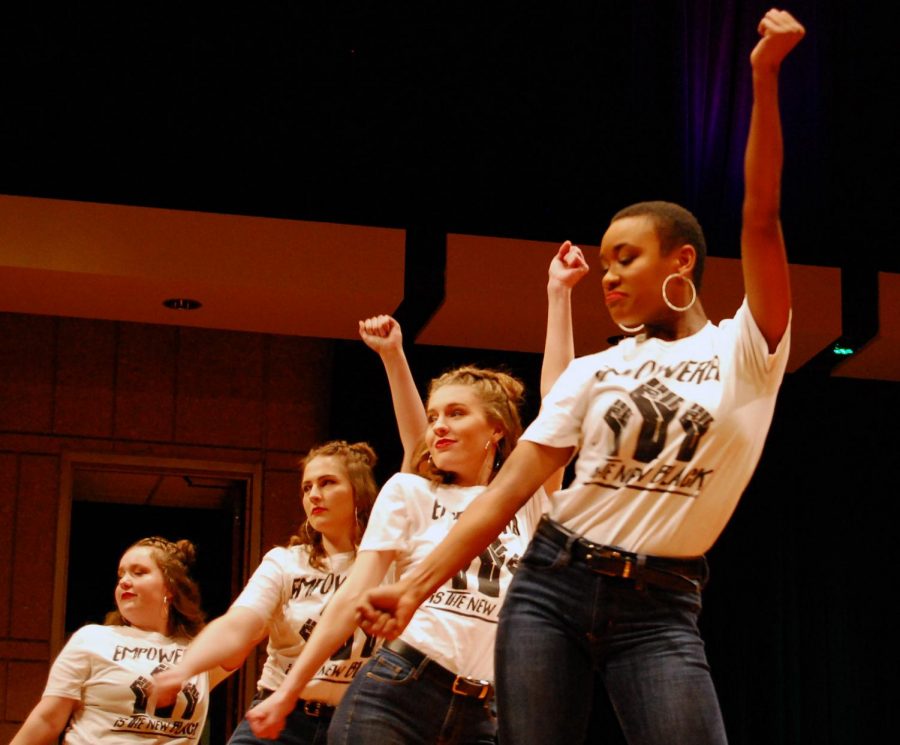Black History Month celebrated with soul food, Step Show
February 1, 2023
February is recognized as Black History Month and South Dakota State University is hosting multiple events in the coming weeks to celebrate and remember Black history.
According to Adonai Ghebrekidan, Black Student Alliance (BSA) president, Black History Month is a time to educate students on the past and celebrate the cultural impact the Black community has had on modern times.
“Black History Month is great because it’s a history that isn’t really as educated or isn’t as clear as people think,” Ghebrekidan said. “A lot of the things that we have learned in high school are just mere facts to the whole story… It’s a great time for everybody to educate themselves about the actual Black history.”
The first of these events is a collaboration with the Brookings Public Library to support Martin Luther King Week. Students from local schools will partake in a drawing contest and the submissions will be posted in the Volstorff Ballroom for the duration of the month.
The next event will be recognizing Cleveland Abbott, a 1916 Black SDSU graduate who went on to serve in World War I, coach Olympic athletes and hold multiple sports titles. According to Multicultural Student Success Adviser Jay Molock, Abbott won at least seven national championships, coached track teams and paved the way for women to get involved in sports. Doug Wermedal, associate vice president of student affairs, will be speaking at the event.
The next event will be a Red Cross Blood Drive hosted by the Multicultural Center and sponsored by the pharmacy school, BSA and athletic department. The blood drive will be Feb. 15-16.
Soul food will be served at the next event Feb. 23 in the Multicultural Center. The authentic southern soul food will be catered from Sioux City and is meant to educate people on the origins of the food. “Soul food” originated from southern states like Mississippi, Georgia and Florida. Molock said this cultural food was the result of slaves making innovating dishes out of slave masters’ leftover foods.
“Slave owners didn’t cook, they had slaves to do the cooking,” Molock said. ‘What the slaves in the house couldn’t cook is what the white people didn’t want, so they will take the entrails out of pigs or cows, today it’s called chitlins or brains. People who were working outside of the house in the field figured out how to turn the master’s trash into the slave’s treasure.”
To close out the month, the annual BSA Step Show is set for 7 p.m. Saturday, March r in the Performing Arts Center. This year will be the first show after a brief hiatus last year due to COVID-19.
Ghebrekidan said that he is thrilled to close up his senior year with the show, as he is looking forward to seeing the guests and viewing the high energy.
Stepping is a form of African dance that was originated from nine national historically Black sororities and fraternities. Three of the groups will be flying to Brookings to perform in the show, including Omega Psi Phi and Zeta Phi Beta from Minnesota and Omega Psi Phi from Nebraska.
BHM History
According to Molock, February is deemed Black History Month because of its founder Carter G. Woodson. Woodson became the second Black person to graduate from Harvard after WEB DuBois.
When Woodson completed his doctoral program, his thesis was on recognizing African Americans for what they had done in history. By the time he left, people had started to celebrate and recognize the holiday.
As the 70s approached, Woodson’s words gained national attention and recognized Black athletes, actors and celebrities. Then, Molock said, Woodson began producing detailed research and compiled lists of what Black people have done throughout history.
Amilynn Hirschfeld, a freshman nursing major, said that it’s a month to feature various individuals while valuing, appreciating and honoring those who contributed and influenced others within our history and community.
Molock said that by celebrating diversity and recognizing history people are coming together and building connections.
Opi Ouallo, BSA’s treasurer, said he hopes to see everyone at the Black History Month events in the coming weeks.
“It’s so our community grows … we want to celebrate diversity, history and to share our stories,” he said.






















